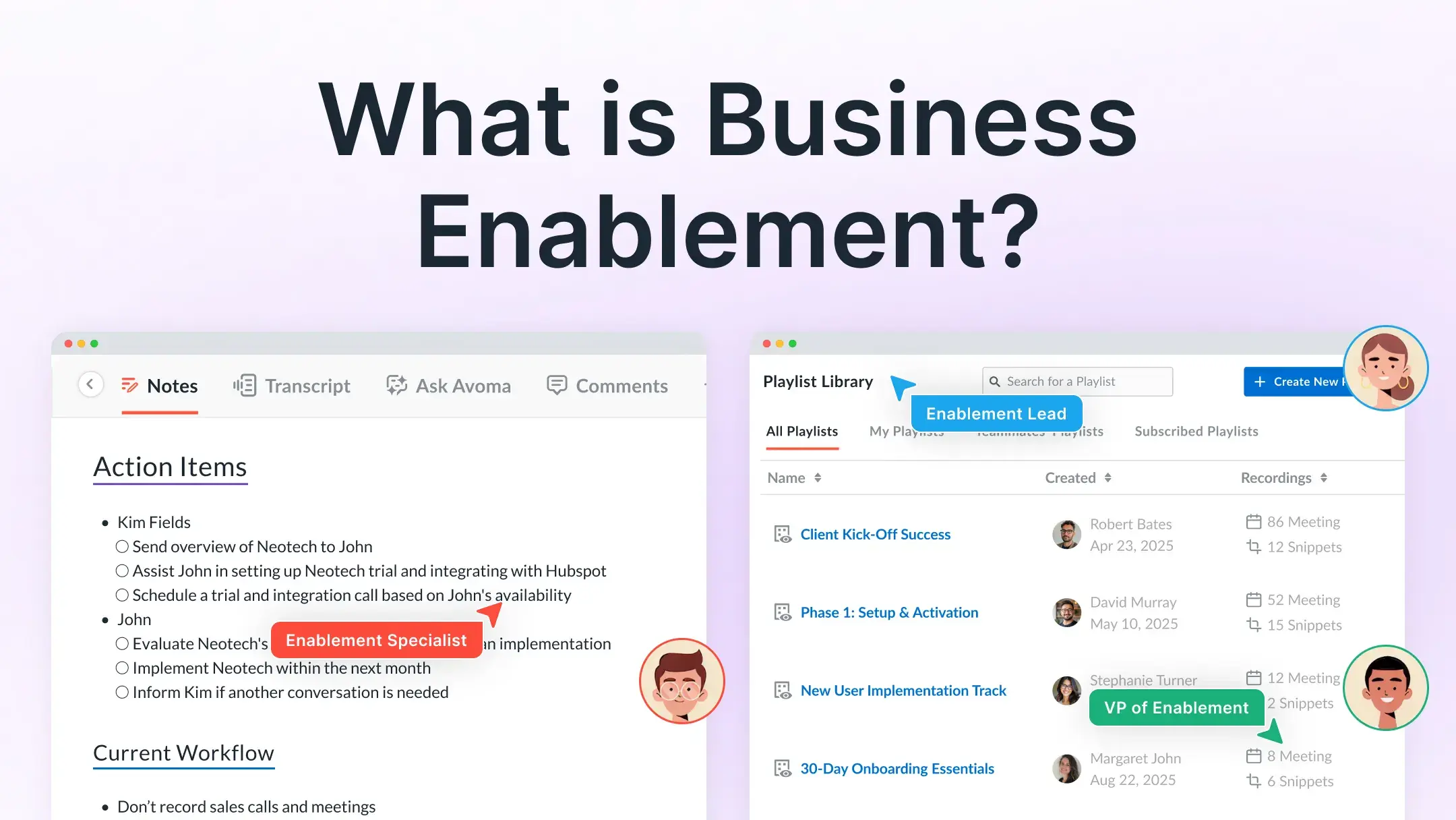How to influence people in the modern world with these 10 principles of persuasion
Table of Contents:

The importance of persuasion
In today's highly competitive and fast-paced world, the ability to persuade others is an invaluable skill. Persuasion is the art of convincing others to believe in your ideas, support your initiatives, and follow your lead.
With the rise of online communication, video conferencing, social networks, and instant messaging, the art of persuasion has evolved to meet the demands of modern communication.
Mastering this skill can lead to better job opportunities, increased productivity, and more successful collaborations. The importance of persuasion in sales cannot be overstated as the top-performing salespeople excel at persuading potential customers by teaching them about their vision and convincing them to buy their products and services.
The ability to influence others in our personal lives in a positive way can help foster healthy relationships and create lasting bonds with the people we care about most. By applying these skills in our family lives, we can enhance our communication skills, create a supportive environment, and deepen our connections with loved ones.
The psychology of persuasion
In his seminal book, Influence: The Psychology of Persuasion, Dr. Robert Cialdini presents six powerful principles of persuasion that can be applied to daily work and personal life. Embracing these classic principles of persuasion and adapting them to the digital landscape can help you thrive in today's fast-paced, technology-driven world.
In addition to Cialdini's classic principles, we also explore four modern principles of persuasion: Personalization, Transparency, Digital Presence, and Emotional Intelligence. These updated principles take into account the ever-evolving world of technology, digital communication, and social norms.
Moreover, these principles are not difficult to follow and can be seamlessly integrated into your daily work and personal routine. Let's dive into these memorable principles and explore how to put them into practice in different situations.
The 6 classic principles of persuasion
1. Reciprocity (The give-and-take rule)
Principle: People tend to return favors or feel obligated to reciprocate when something is given to them.
How to put it into practice in different situations:
- In personal life: Offer help, support, or a listening ear to your loved ones and they'll be more likely to reciprocate when you need assistance or encouragement.
- In social media: Share valuable content, resources, or insights with your online network and they'll be more likely to engage with your posts or support your initiatives.
- In the workplace: Offer to help a colleague with their workload or task and they'll be more likely to assist you in the future.
- In a sales role: Offer valuable content or information to potential customers and they'll be more likely to consider purchasing your product or service.
2. Commitment and consistency (The stick-to-it factor)
Principle: Once people commit to a decision or action, they are more likely to follow through and remain consistent with their initial choice.
How to put it into practice in different situations:
- In personal life: Encourage family members to set personal goals or commitments and then hold each other accountable for following through and maintaining consistency.
- In social media: Encourage followers to publicly commit to a challenge or pledge on social media, increasing the likelihood of their participation and advocacy.
- In the workplace: Get team members to publicly commit to a project deadline, increasing their likelihood to work diligently to meet it.
- In a sales role: Get potential customers to commit to certain next steps or champion your product or service in their organization and they'll be more likely to follow through with a purchase.
3. Social Proof (The crowd effect)
Principle: People tend to follow the actions or beliefs of others, especially when they are uncertain or feel that others are similar to them.
How to put it into practice in different situations:
- In personal life: Share positive experiences or recommendations with friends and family members, influencing them to consider similar choices or behaviors.
- In social media: Showcase positive customer reviews, testimonials, or influencer endorsements on your website and social media platforms to build credibility and trust.
- In the workplace: Share success stories or testimonials from other departments to encourage colleagues to adopt a new process or tool.
- In a sales role: Share testimonials or success stories from satisfied customers to encourage potential clients to choose your product or service.
4. Liking (The buddy system)
Principle: People are more likely to be persuaded by those they like or find attractive, either personally or professionally.
How to put it into practice in different situations:
- In personal life: Build rapport with friends and family members by finding common interests, sharing personal stories, struggles and achievements, and offering genuine compliments.
- In social media: Cultivate an authentic, relatable online presence by sharing personal stories, engaging with your audience, and expressing genuine interest in their opinions.
- In the workplace: Build rapport with coworkers by finding common interests, sharing personal stories, being vulnerable or sharing ups and downs, and offering genuine compliments.
- In a sales role: Build rapport with prospects by finding common interests, sharing personal stories, gifting them, or offering genuine compliments.
5. Authority (The expert endorsement)
Principle: People tend to obey or respect the opinions of experts or authority figures.
How to put it into practice in different situations:
- In personal life: Earn the respect of your loved ones by demonstrating competence, knowledge, and responsibility in areas of expertise, and offering guidance when needed.
- In social media: Establish yourself as a thought leader by consistently sharing industry insights, participating in online discussions, and collaborating with respected experts in your field.
- In the workplace: Get the initial buy-in from the C-suite leaders in your organization to ensure people adopt your new ideas.
- In a sales role: Showcase your expertise or seek endorsements from respected industry leaders to boost the credibility of your product or service.
6. Scarcity (The fear of missing out)
Principle: Opportunities or items that are limited in availability become more attractive, as people fear missing out on something valuable.
How to put it into practice in different situations:
- In personal life: Encourage loved ones to seize unique opportunities, such as exclusive events or limited-time experiences, to create shared memories and enhance your bond.
- In social media: Promote exclusive, time-sensitive offers or limited-access content on your website and social media platforms to generate excitement and urgency among your audience.
- In the workplace: Emphasize the unique, time-sensitive benefits of a proposal or project to generate enthusiasm and urgency among team members.
- In a sales role: Emphasize the unique, time-sensitive benefits or exclusive offers related to your product or service to generate enthusiasm and urgency among potential customers.
The 4 new principles of persuasion for the modern age
Cialdini's 6 principles of persuasion have stood the test of time and remain highly relevant even in the modern world. But with the rapid evolution of technology, digital communication, and social norms, there may be additional factors or adaptations of these principles that are worth considering. Here are a few potential additions or updates to the original principles:
7. Personalization (The tailored approach)
Principle: In the era of big data and advanced algorithms, people expect content and communication to be tailored to their individual needs and preferences. Personalizing your approach when trying to influence someone can increase the chances of success by making them feel understood and valued.
How to put it into practice in different situations:
- In personal life: When giving a gift or planning an event, consider your family member’s unique tastes, interests, and preferences.
- In social media: Use email segmentation and marketing automation to send personalized content and offers to different target audience groups.
- In the workplace: Customize presentations or reports to address the specific concerns or interests of your colleagues or managers.
- In a sales role: Analyze customer data to identify their needs, preferences, and pain points, and tailor your sales pitch accordingly.
8. Transparency (The open book policy)
Principle: With the rise of digital communication and social media, people have become more sensitive to manipulation and deceit. Demonstrating transparency and honesty in your intentions and actions can help build trust, credibility, and ultimately persuade others to support you.
How to put it into practice in different situations:
- In personal life: Communicate openly and honestly with friends and family members about your feelings, thoughts, and intentions.
- In social media: Be transparent about your online business practices such as data privacy policies and advertising disclosure statements.
- In the workplace: Openly share project updates, challenges, and progress with team members or other stakeholders to foster trust and collaboration.
- In a sales role: Clearly communicate product features, pricing, and any potential limitations to customers to build credibility.
9. Digital Presence (The online influence)
Principle: In today's interconnected world, our online presence and reputation can significantly impact our ability to influence others. Cultivating a strong and positive digital presence can enhance your credibility and extend your reach, allowing you to influence a broader audience.
How to put it into practice in different situations:
- In personal life: Use social media platforms to connect with friends, share life updates, and engage in meaningful conversations.
- In social media: Maintain an active blog or website to share valuable content and demonstrate your expertise in a specific niche or subject area.
- In the workplace: Build a strong LinkedIn profile showcasing your professional achievements, skills, and endorsements from colleagues.
- In a sales role: Leverage social media platforms to share customer success stories, product updates, and industry news to engage potential clients.
10. Emotional Intelligence (The empathetic touch)
Principle: In a world where people are increasingly seeking genuine connections, being emotionally intelligent can be a powerful tool for persuasion. Demonstrating empathy, active listening, and understanding others' emotions can help create strong bonds and make others more receptive to your ideas.
How to put it into practice in different situations:
- In a personal life: Show empathy and understanding when friends or family members experience difficulties, and offer emotional support.
- In social media: Engage with your online community by responding empathetically to comments, questions, and feedback.
- In the workplace: Practice active listening and empathy when interacting with colleagues, and provide support when needed.
- In a sales role: Build rapport with potential customers by actively listening and understanding their core business needs and addressing their concerns.
While these additional principles may not necessarily be better than Cialdini's original six principles, they can complement and enhance the effectiveness of the classic principles in the context of modern life.
A snapshot of the principles of persuasion

The hidden benefits of applying principles of persuasion
To unlock a multitude of benefits
By mastering and applying these principles of persuasion in the digital realm, you can unlock a multitude of benefits in your personal as well as professional life. Persuasion can lead to increased influence, better team dynamics, better online engagement, increased influence, and a more fulfilling career.
If you’re in sales, incorporating these principles into your daily sales interactions can significantly elevate your sales performance. As you become more adept at recognizing and implementing these techniques, you'll be better equipped to convince potential customers, build strong relationships, and achieve extraordinary success.
The power of persuasion is a formidable tool—embrace it, and unlock your full potential in sales and beyond.
To protect yourself against manipulation
Understanding the principles of persuasion helps you recognize when others are using them, empowering you to make more informed decisions in both your digital and offline interactions. A strong grasp of Cialdini's principles not only equips you with the power to influence others but also provides a defense against manipulation.
Recognizing when someone is using these techniques on you can help you maintain control over your decisions and prevent being swayed by persuasive tactics. By mastering the art of persuasion, you can navigate the complex world of sales, negotiations, and interpersonal relationships with greater confidence and success.
Frequently Asked Questions






What's stopping you from turning every conversation into actionable insights?










